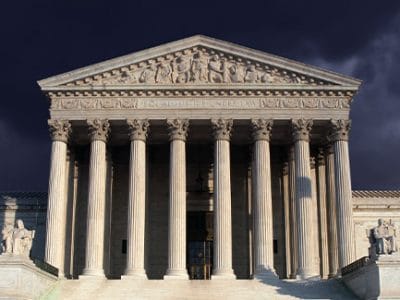Guest Commentary
I am an American citizen of Scottish extraction, and few things stir my blood more than the colorful history of my ancestral homeland. Through the centuries, rugged Scots stand tall among those heroes who gave every ounce of their lives for such noble ideals as liberty, independence and self-reliance.
Mel Gibson’s epic film “Braveheart,” released in 1995, introduced many non-Scots to one of our greatest heroes, William Wallace. A fierce and uncompromising Scottish patriot, Wallace gave English invaders fits for years until his capture on August 5, 1305. He was hauled to London to face charges of insurrection, found guilty and brutally executed by Edward I exactly seven centuries ago today, on August 23, 1305.
Edward was deservedly known as the “Hammer of the Scots.” His designs on Scotland were apparent shortly after he ascended to the English throne in 1272, when Wallace was but two years old. While the Scottish people themselves may have been staunch in their desire to retain their own national identity, many of their nobility were unprincipled opportunists who connived with Edward to allow English encroachment in exchange for political favors. More than a dozen of them claimed the Scottish throne in 1290 and then invited Edward’s arbitration to settle the question.
The English king chose John Balliol to be his royal puppet in exchange for the Scottish king’s oath of loyalty to England. But in 1296, Balliol found the spine to differ with Edward over an important issue, and the two nations went to war.
Young Wallace emerged early as a Scottish patriot of special mettle, leading his countrymen to a smashing victory at the Battle of Stirling Bridge in August 1297. “All powerful as a swordsman and unrivalled as an archer,” wrote John D. Carrick in his classic Life of Sir William Wallace of Elderslie, “his blows were fatal and his shafts unerring: as an equestrian, he was a model of dexterity and grace; while the hardships he experienced in his youth made him view with indifference the severest privations incident to a military life.”
Wallace’s courage united Scotland, but 11 months after Stirling, the Scots were outnumbered at Falkirk and dealt a crushing blow. His forces scattered, Wallace took his campaign for independence to the courts of Europe in search of foreign alliances. When he returned to Scotland in 1303, he was the most-wanted fugitive in the country, and he was betrayed to Edward in the summer of 1305. The evidence is strong that it wasn’t commoners who broke faith with him, but highly-placed Scottish officials who sold out to Edward. He was hauled to London, where he was hanged and then drawn and quartered while he was still alive. Before he died, he responded to the charges against him with these words:
I can not be a traitor, for I owe him no allegiance. He is not my Sovereign; he never received my homage; and whilst life is in this persecuted body, he never shall receive it. To the other points whereof I am accused, I freely confess them all. As Governor of my country I have been an enemy to its enemies; I have slain the English; I have mortally opposed the English King; I have stormed and taken the towns and castles which he unjustly claimed as his own. If I or my soldiers have plundered or done injury to the houses or ministers of religion, I repent me of my sin; but it is not of Edward of England I shall ask pardon.
Avenging Wallace’s death became a rallying cry in the years thereafter. Edward died in 1307 with Scotland still simmering in revolt. Under Robert the Bruce, the forces of Edward II were decisively defeated at Bannockburn in 1314. Six years later, the Scots issued the famous Declaration of Arbroath in hopes that the Pope would convince the English to leave Scotland alone. This declaration, written a full four and a half centuries before the American Declaration of Independence, enunciated the principle that a king must rule by the consent of the governed, who in turn have a duty to get rid of him if he doesn’t. It concluded with these stirring words: “It is not for honors or glory or wealth that we fight, but for freedom alone, which no good man gives up except with his life.”
The crowns of England and Scotland were united in the early 17th century and the parliaments were merged a hundred years later, but Scotland retains a strong national identity within the United Kingdom. Wallaceite rugged individualism was apparent in the ideas of the Scottish Enlightenment, which produced Adam Smith, David Hume and other 18th century thinkers committed to ideas of limited government, self-reliance, freer markets and personal freedom. William Ewart Gladstone, one of Britain’s greatest prime ministers and an ardent opponent of excessive government, had deep roots in Scotland.
* * *
Though my Scottish blood and love of liberty make me proud of this heritage, I worry that Scots in more recent decades may be forsaking their history. The spirit of Wallace and the contributions of Hume, Smith and Gladstone are officially venerated, but in practice, Scottish policymakers seem wedded to the coercive nanny state. The great Scots of the past would probably be shocked to know how extensively their descendents now depend upon the largesse of government. As Alexander Hamilton, an American of Scottish ancestry, once wisely warned, “Control of a man’s subsistence is control of his will.”
“Scotland is the most socialist part of Britain,” says John Blundell, director of the Institute of Economic Affairs in London. “It even has strong credentials as the most socialist part of the European Union. Its public sector, including municipal agencies, consume more of the (gross domestic product) than in any other OECD[1] nation.” The romantic, noble image of proud and independent Scots has given way to a very different reality: a heavily subsidized population that overwhelmingly supports political candidates who demand even more subsidies.
Still, on this 700th anniversary of the death of William Wallace, Scots seem to know instinctively something very fundamental to the greatness of their past and their distinction as a people: Their proudest heritage is one of keeping government at bay, not granting it broad power over their lives and livelihoods. As a Scot, that’s what I will be celebrating this day.




